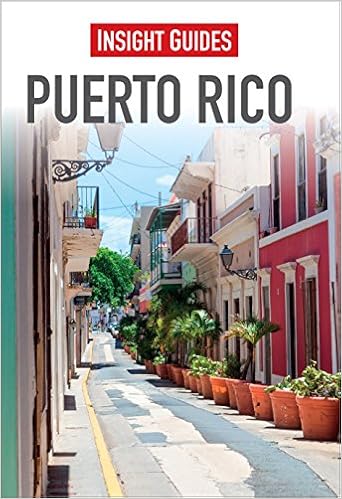Passports and Visa Requirements
There are no passports or visas necessary for United States citizens, which mean that US citizens can travel freely in and out of the island without going through immigration or customs. US citizens only need to have some form of official government issued picture identification to enter Puerto Rico such as a current driver's license or a photo-identification card issued to non-drivers by a state's motor vehicles department. If you are traveling onward to another Caribbean destination (other than the U.S. Virgin Islands) from Puerto Rico, you will need to present your passport. For additional information, contact your local U.S. Embassy or call the Puerto Rico State Department at (787) 722-2121.
Citizens of other countries have the same requirements as for entering the USA. Potential visitors must first obtain a visa, either a non-immigrant visa for temporary stay or an immigrant visa for permanent residence. The 90-day "visitor" visa is a non-immigrant visa to enter the United States temporarily. Those planning to travel to Puerto Rico for a different purpose, such as study or temporary work, must apply for specialized visas (either an M-1 or F-1 class). A visa is not a guarantee of entry into Puerto Rico. The bearer of a visa is subject to inspection at the port of entry by U.S. Department of Homeland Security officials who have authority to deny admission (Homeland Security Advisor, La Fortaleza, P.O. Box 9020082, San Juan, PR 00902-0082 - 787-977-7730 / 7731).
At the airports in Puerto Rico, your luggage will be inspected by the U.S. Department of Agriculture to make sure you are not carrying prohibited fruits and plants to the mainland. Avocado, papaya, coconut and plantain can be taken to the U.S.; mango, sour sop, passion fruit and plants potted in soil cannot. Travelers carrying undeclared prohibited items will be fined on the spot. Articles from Vietnam, North Korea, Kampuchea or Cuba, illegal publications, lottery tickets, chocolate liqueurs or pre-Columbian artifacts may not be brought into the country.
Passing through customs should be routine and quick. If you are taking prescription drugs, make sure you have a copy of the prescription with you; otherwise you could be held up.
If you want a copy of what is and is not permitted back on the mainland, write the U.S. Agriculture Department, Animal and Plant Health Inspection Service, 4700 River Road, Riverdale, MD 20737 or call (787) 796-1650.
Embassies & Consulates
Because Puerto Rico is part of the United States, Puerto Rico is represented abroad by US Embassies and Consulates.
Puerto Rico hosts Consulates from 42 countries from the Western Hemisphere and Europe. Most consulates are located in San Juan.
How to Cite This Webpage
Don't forget to cite this webpage on your project sources (APA Style).
Rivera, M. (2024, November 14). (none). Welcome to Puerto Rico! Retrieved 30 April 2025, from https://www.topuertorico.org/passports.shtml.
Insight Guides Puerto Rico
(Travel Guide with Free eBook)
Frommer's EasyGuide to Puerto Rico
(Easy Guides)







